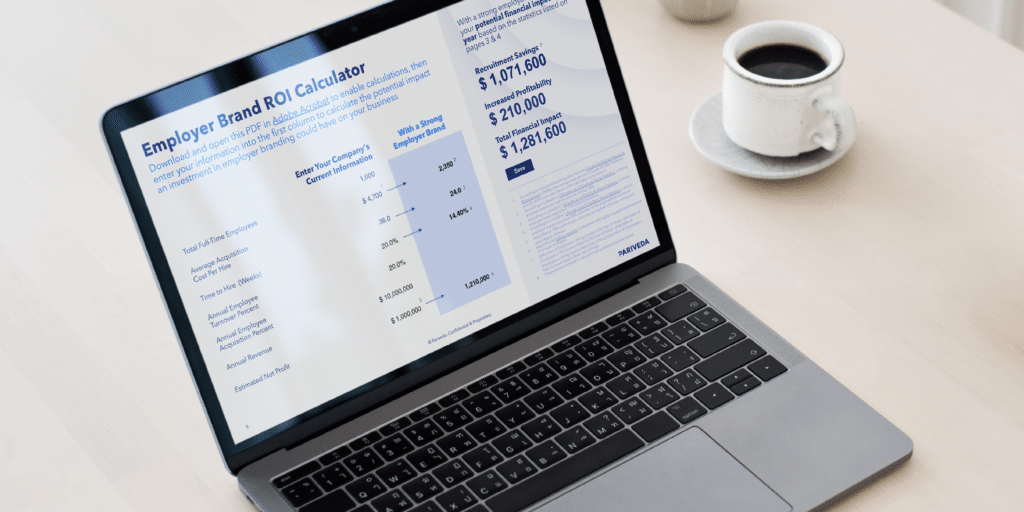As businesses navigate today’s uncertain economic environment, many have made significant cutbacks to maintain a foothold in an ever-shifting marketplace.
Given these shifts, companies are seeking strategies that help them stabilize and position them for future growth. In this context, the strategic value of employer branding emerges as a key driver, essential not only for weathering current challenges but also for ensuring a smooth and efficient scale-up in the aftermath. Employer branding is not just about “hiring people.” Effective employer branding impacts market position, operational costs, and revenue potential.

Employer Branding is the lens of a brand that is focused on the talent market. It is the active management of the perception of a business from the perspective of job candidates, employees, and key stakeholders. Words, actions, and experiences all shape an employer brand, and the stronger your employer brand, the more value you will see from it.
When companies have cut nearly twice as many jobs this year compared to last, it might be hard to see why you should focus on employer branding. In the tech industry alone, job cut announcements are up 716% YOY, with nearly 152,000 jobs cut this year. In light of this information, which likely has affected your organization as well, why put time, effort, or money into an employer branding effort?
Reasons to invest in employer branding
Employee Retention
With so many companies operating with leaner teams, retention of current employees becomes increasingly critical. Retention isn’t just about numbers; it’s about harnessing institutional knowledge to drive innovation and profit. With a staggering 61% of U.S. workers contemplating a job switch, strategies to retain your talent are paramount. A robust employer brand plays a pivotal role: companies boasting strong employer branding report an 87% lower likelihood of their employees leaving. (Inc, 2022) Additionally, the tangible financial implications of staff turnover can’t be ignored, from the cost of replacement and onboarding to the lost productivity during the replacement’s ramp-up time.
Employee Engagement
Beyond the immediate costs of recruitment and retention, there’s an even broader financial impact tied to employee engagement. Lost productivity due to low employee engagement sets businesses back by $450-500 billion annually. On the flip side, those with engaged workforces reap the benefits of 21% higher profitability. With stakes this high, employer branding becomes an investment rather than an expense.
Recruiting
In the past 12 months, employers have severely cut their HR and recruiting staff. According to Forbes, these functions have accounted for nearly 30% of all layoffs in tech. When the demand to scale up hiring once again arises, companies will need to optimize their resources. Here again, employer branding is a key lever. Companies with strong employer branding see up to a 50% reduction in cost-per-hire and attract 50% more qualified applicants. With the efficiencies this brings, businesses can expect a 1-2x faster time-to-hire rate. (LinkedIn, 2021)

If you’re interested in exploring the ROI of employer branding, try our Employer Branding ROI Calculator.
Pariveda’s holistic approach to employer branding encompasses all the strategic actions that shape the perception of your business.
We go beyond brand messaging and promotion to get to the heart of what makes your business attractive to targeted talent and a great place to work for existing employees.
If you’re interested in reaping the benefits of a strong employer brand, contact us to start the conversation.



















